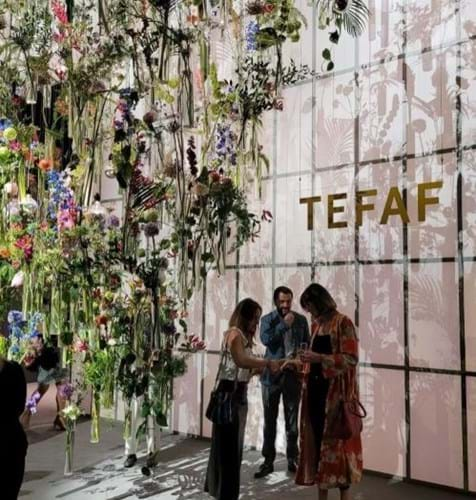Yannick Chastang, a Kent-based furniture restorer, made a public break with the fair in an Instagram post. He cited issues relating to dealers’ over-restoration of objects, their non-compliance with vetting decisions, neglect of the development in scholarship and scientific study of the decorative arts, and a disregard for regulations including those of CITES.
He said in the post: “When I started vetting, the brief was to ‘protect the interest of the clients’. My recent experience has involved vetting decisions being overruled or ignored and I will not be complicit with such practices.”
A vetter at the fair for 18 years, he was most recently on the team for western furniture and works of art from 1600 onwards. At one time he was also head of the furniture group.
There are nearly 200 vetters on the list for TEFAF Maastricht 2023, plus a scientific team of 15. The fair calls vetting one of its ‘main pillars,’ and reviews and adjusts its vetting practices over time.
In 2018, for example, all dealers and auction house specialists were removed from the vetting panels, with a few trade members kept on as non-voting experts in a bid to combat conflicts of interest and “ensure [TEFAF] remains the most trusted sales platform within the international marketplace”.
However, Chastang said in his post that retaining exhibitors on the organising committee (as opposed to its vetting committee) posed its own conflicts of interest.
Though he praised advances in the study of decorative arts he added: “Too many objects in the trade have been over-restored and often modified to look like what they are not. Unfortunately, only a handful of dealers have embraced the changes in scholarship and scientific study of decorative arts, and have acknowledged the restrictions in trading and using materials from wildlife and endangered species (ivory and tortoiseshell/CITES).”
Responding to the post, Bart Drenth, managing director of TEFAF, told ATG that the vetting committee ensures “stringent vetting procedures and regulations”.
He added: “In 2022 we further strengthened our vetting procedures through a vetting charter. Under the this charter dealers have the right to appeal the initial judgment of the vetting committee, the final decision is however up to the chairman of the vetting committee."
Wim Pijbes, global chairman of vetting at TEFAF, said: “TEFAF upholds the highest standards of vetting, and its meticulous approach has always set us apart, providing a benchmark for other international art and antiques fairs."
Theft recovery
Separately, investigators have identified suspects in the daylight smash-and-grab which took place at last year’s event, and have recovered one of the stolen jewels.
An announcement on the Maastricht police’s website last Friday said that the suspects originate from the Balkans. The ongoing investigation comprises around 20 detectives working with Interpol, Europol and other international bodies.
The lead researcher said the recovered item was not the “(well-known) large yellow diamond,” but is “another big step in the investigation”.
There are new security procedures in place for the fair this year, including metal detectors at the entrance and a limit on baggage brought into the fair.
Symbolic & Chase, the firm that was targeted last year, was invited to return but ultimately declined as some of the security procedures remain under wraps.
The fair runs until March 19 and hosts 270 exhibitors bringing thousands of years’ worth of art, antiques and design under one roof.






